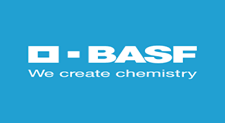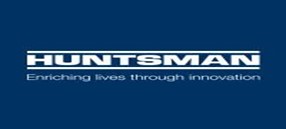Top 10 Trends in the Global Elastomers Market: key Leading Companies, Growth and Market Insights
RELEASE DATE: Mar 2025 Author: Spherical Insights Request Free Sample
The Global Elastomers Market Size is witnessing significant transformations driven by advancements in material science, sustainability initiatives, and the rising demand across industries such as automotive, healthcare, and construction. Elastomers, known for their flexibility, durability, and resilience, are crucial in applications ranging from tires and seals to medical devices and consumer goods. As industries seek innovative solutions, several key trends are shaping the future of elastomer production and applications.
Top 10 Trends in the Global Elastomers Market
1. Rising Demand for Sustainable and Bio-Based Elastomers
Sustainability has become a major focus in elastomer manufacturing. The growing concerns over carbon emissions and environmental pollution have led to increased interest in bio-based and recycled elastomers. Manufacturers are exploring alternative raw materials, such as plant-derived monomers and waste rubber recycling, to reduce dependency on petroleum-based sources. Companies are investing in green elastomers, such as bio-based thermoplastic elastomers (TPEs) and natural rubber alternatives, to align with stricter environmental regulations and consumer preferences for eco-friendly products.
2. Advancements in Thermoplastic Elastomers (TPEs)
Thermoplastic elastomers are gaining popularity due to their recyclability, lightweight properties, and ease of processing compared to traditional vulcanized rubbers. Innovations in TPE blends and compounds are enabling their use in automotive interiors, medical devices, and consumer electronics. The shift toward soft-touch materials in wearable technology and medical applications is also driving TPE demand. Additionally, hybrid TPE formulations are being developed to enhance durability, UV resistance, and mechanical strength for high-performance applications.
3. Increasing Use of High-Performance Elastomers in Automotive Applications
The automotive industry remains one of the largest consumers of elastomers, particularly for seals, gaskets, hoses, and tires. The shift towards electric vehicles (EVs) and lightweight automotive components is boosting demand for high-performance elastomers that offer superior thermal stability, electrical insulation, and chemical resistance. Fluor elastomers, silicone elastomers, and hydrogenated nitrile butadiene rubber (HNBR) are increasingly used in EV battery systems, fuel-efficient tires, and vibration-dampening materials. The demand for low-rolling resistance tires is also contributing to elastomer innovations that improve fuel efficiency and performance.
4. Growth of Medical-Grade Elastomers in Healthcare Applications
Medical-grade elastomers are experiencing significant growth due to their biocompatibility, flexibility, and sterilization resistance. The healthcare sector relies on elastomers for applications such as catheters, gloves, syringe plungers, medical tubing, and prosthetics. Advances in silicone elastomers, thermoplastic polyurethanes (TPUs), and ethylene propylene diene monomer (EPDM) rubber are expanding their use in drug delivery systems and wearable medical devices. With the rising demand for minimally invasive medical procedures, elastomers with enhanced durability, antimicrobial properties, and hypoallergenic characteristics are being developed.
5. Smart and Self-Healing Elastomers Gaining Momentum
Innovations in material science have led to the development of smart elastomers that exhibit self-healing properties, shape memory effects, and conductivity. Self-healing elastomers, capable of repairing cracks and damage, are being researched for wearable electronics, aerospace components, and flexible sensors. Conductive elastomers are enabling advancements in soft robotics, stretchable electronics, and flexible displays. These materials improve durability, reduce maintenance costs, and enhance product longevity, making them attractive for high-tech and industrial applications.
6. Expanding Role of Elastomers in 3D Printing
3D printing technology is evolving beyond rigid plastics and metals, with elastomers playing an increasingly important role in additive manufacturing. The ability to print customized, flexible components is revolutionizing industries such as footwear, medical prosthetics, and automotive interiors. Advanced liquid silicone rubber (LSR) and thermoplastic polyurethane (TPU) filaments are being optimized for high-precision, durable 3D-printed parts. The ability to create complex geometries, lightweight structures, and functional prototypes with elastomers is enhancing design possibilities across multiple sectors.
7. Rising Demand for Flame-Retardant Elastomers
Industries such as aerospace, construction, and transportation require elastomers with superior flame-retardant properties to enhance safety and regulatory compliance. Developments in halogen-free flame-retardant elastomers are gaining traction due to environmental concerns and strict fire safety standards. Silicone-based elastomers, thermoplastic polyurethanes (TPUs), and specialty rubber compounds are being engineered to withstand high temperatures while maintaining flexibility and durability. The demand for flame-resistant wire coatings, insulation materials, and protective equipment is fueling advancements in this segment.
8. Increased Focus on Elastomer Recycling and Circular Economy Initiatives
The growing emphasis on a circular economy has led to the development of recycled and repurposed elastomers. The automotive and tire industries are investing in rubber devulcanization techniques, enabling used rubber to be transformed into new materials without compromising performance. Advances in chemical recycling and mechanical reprocessing are improving the quality of recycled elastomers, allowing them to be integrated into new products, road construction materials, and sustainable footwear. Governments and organizations are implementing strict waste management policies to promote elastomer recycling and reduce landfill waste.
9. Increasing Adoption of Elastomers in Renewable Energy Applications
The renewable energy sector is driving demand for elastomers in wind turbines, solar panels, and energy storage systems. Elastomeric materials are used in seals, weather-resistant coatings, and vibration dampeners to improve the efficiency and longevity of renewable energy infrastructure. The development of UV-resistant and extreme weather-tolerant elastomers is particularly important for offshore wind farms and solar power installations. With the global shift toward clean energy solutions, elastomer innovation is becoming integral to enhancing the durability and performance of sustainable energy technologies.
10. Rising Investments in Research and Development (R&D) for Advanced Elastomers
Manufacturers and research institutions are investing heavily in elastomer R&D to develop next-generation materials with superior properties. The focus is on improving durability, flexibility, thermal resistance, and sustainability while reducing production costs. Advancements in nanocomposite elastomers, bio-based synthetic rubbers, and hybrid materials are opening new opportunities across multiple industries. Collaborative efforts between universities, material scientists, and industry leaders are accelerating the discovery of high-performance elastomers with enhanced functionality for future applications.
List of Key Companies
- BASF SE
- Huntsman Corporation
- ExxonMobil
- DuPont de Nemours, Inc.
- Arkema
- INEOS
- Asahi Kasei Corporation
- LANXESS AG
- LG Chem
- Chemtura Corporation
- Mitsui Chemicals, Inc.
- JSR BST Elastomer Co., Ltd
- Zeon Chemicals L.P.
- Kuraray Co., Ltd.
- Wacker Chemie AG
- Others
Top 5 Company Profiles
1. BASF SE

Headquarters: Ludwigshafen, Germany
BASF SE is a global leader in chemicals and advanced materials, specializing in the production of plastics, performance materials, coatings, and specialty chemicals. With a strong presence in agriculture, automotive, construction, and consumer goods industries, the company focuses on sustainability and innovation. BASF is actively developing bio-based and high-performance elastomers to meet evolving market demands. The company invests heavily in R&D, with numerous research centers worldwide driving advancements in polyurethane elastomers, thermoplastic elastomers (TPEs), and specialty rubber solutions. With a vast global supply chain and strategic partnerships, BASF continues to shape the future of the elastomers industry.
2. Huntsman Corporation

Headquarters: The Woodlands, Texas, USA
Huntsman Corporation is a multinational manufacturer of specialty chemicals and performance materials, known for its polyurethane, epoxy, and advanced elastomer solutions. The company serves diverse industries, including automotive, construction, aerospace, and footwear, providing high-performance elastomers, adhesives, and coatings. Huntsman is at the forefront of sustainable polyurethane elastomers, developing bio-based and recyclable formulations. Its innovative low-emission and energy-efficient solutions support industries in reducing environmental impact. With a global manufacturing footprint and strong focus on R&D, Huntsman continues to drive advancements in next-generation elastomers for high-performance and sustainable applications.
3. ExxonMobil

Headquarters: Irving, Texas, USA
ExxonMobil is one of the world’s largest petrochemical and energy companies, playing a key role in the development of synthetic elastomers, thermoplastic materials, and specialty polymers. Its Vistalon™ EPDM (ethylene propylene diene monomer) and Exact elastomers are widely used in automotive, industrial, and consumer goods applications. The company focuses on energy-efficient and high-durability elastomers, catering to the growing demand for fuel-efficient tires, medical applications, and advanced sealing solutions. With a commitment to sustainability and recycling technologies, ExxonMobil is pioneering efforts in circular polymer solutions and bio-based elastomers, ensuring long-term advancements in material science.
4. DuPont de Nemours, Inc.

Headquarters: Wilmington, Delaware, USA
DuPont de Nemours, Inc. is a leading materials science company specializing in high-performance polymers, elastomers, and specialty materials. Its elastomer portfolio includes Vamac ethylene acrylic elastomers, Kalrez perfluoroelastomers, and Hytrel thermoplastic polyester elastomers (TPEs), widely used in automotive, aerospace, electronics, and healthcare applications. DuPont focuses on lightweight, durable, and heat-resistant elastomers, driving innovation in electric vehicles, advanced sealing solutions, and wearable technology. The company is actively investing in sustainable material development, including bio-based elastomers and recycling technologies, ensuring a reduced environmental footprint while maintaining high-performance standards.
5. Arkema

Headquarters: Colombes, France
Arkema is a global specialty chemicals and advanced materials company, recognized for its high-performance elastomers, thermoplastic resins, and industrial polymers. The company’s Pebax thermoplastic elastomers and Kynar fluoropolymers are widely used in sportswear, automotive, aerospace, and medical devices. Arkema is a leader in bio-based elastomer solutions, leveraging its expertise in renewable raw materials to develop sustainable and lightweight performance elastomers. Its strong focus on innovation, eco-friendly manufacturing, and advanced polymer engineering positions it as a key player in the elastomers market. With continuous R&D investments, Arkema is shaping the future of next-generation elastomer applications.
Conclusion
The global elastomers market is undergoing a transformative shift, driven by technological advancements, sustainability goals, and evolving industry demands. The increasing adoption of bio-based elastomers, smart materials, and recyclable rubber compounds is shaping the future of elastomer applications. With rising investments in research and innovation, the industry is set to witness continued growth and diversification, catering to the ever-evolving needs of modern industries. Companies that embrace these trends and focus on sustainable, high-performance elastomer solutions will remain at the forefront of this dynamic market.
About the Spherical Insights & Consulting
Spherical Insights & Consulting is a market research and consulting firm which provides actionable market research study, quantitative forecasting and trends analysis provides forward-looking insight especially designed for decision makers and aids ROI.
Which is catering to different industry such as financial sectors, industrial sectors, government organizations, universities, non-profits and corporations. The company's mission is to work with businesses to achieve business objectives and maintain strategic improvements.
CONTACT US:
For More Information on Your Target Market, Please Contact Us Below:
Phone: +1 303 800 4326 (the U.S.)
Phone: +91 90289 24100 (APAC)
Email: inquiry@sphericalinsights.com, sales@sphericalinsights.com
Contact Us: https://www.sphericalinsights.com/contact-us